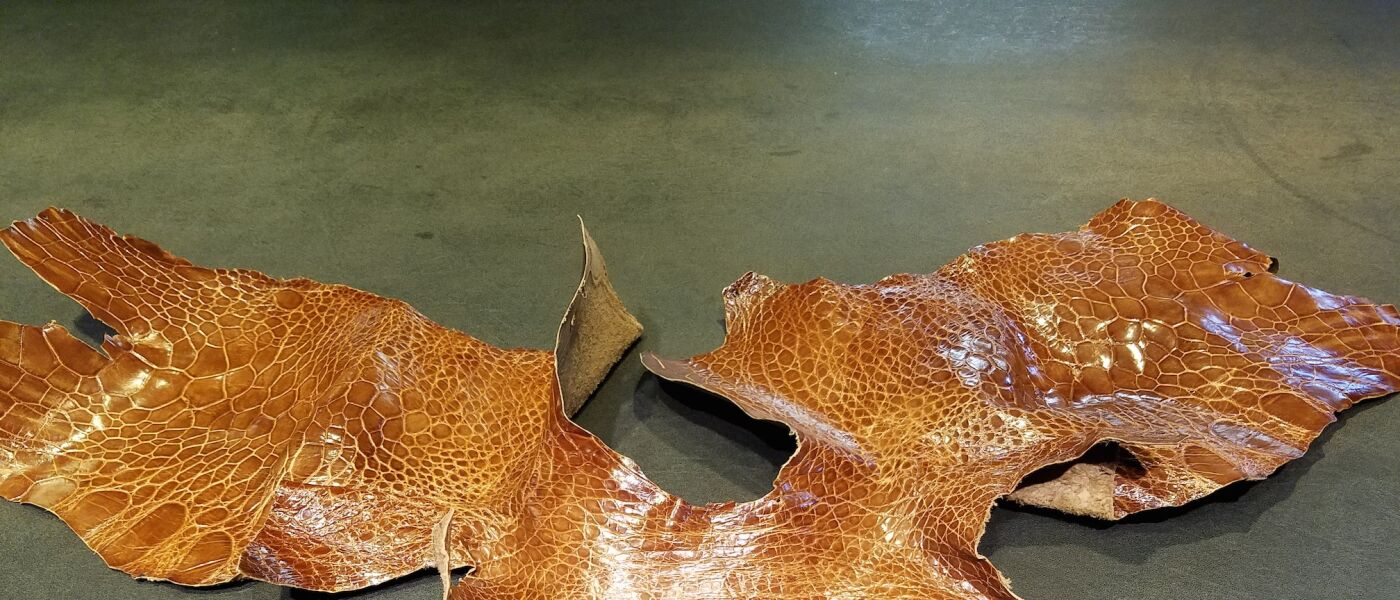Of Ivory and Sea Turtles: New additions to Animal Artifacts focus on conservation
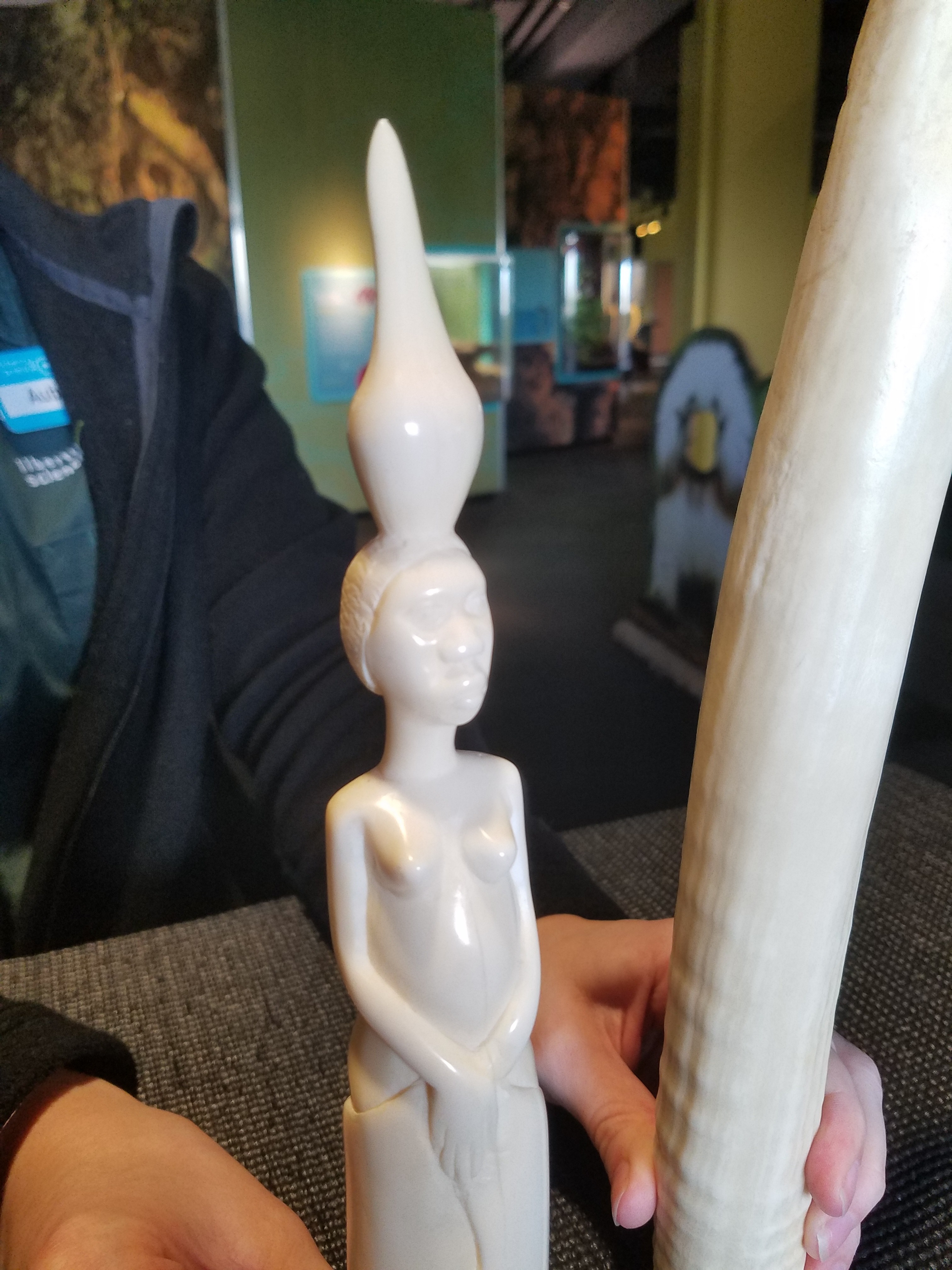
The Animal Interpretation team at Liberty Science Center takes pride in being able to give guests of all ages a hands-on learning experience. A few times a week, we bring out the Animal Artifacts cart. In this cart, we have what we like to call “bio-facts” such as porcupine quills, turtle shells, and peacock feathers (a guest favorite!).
We have recently added a few new bio-facts to our Animal Artifact sessions. One is an ivory carving. This miniature statue of a woman may appear to be no more than a beautiful trinket, but don’t let that fool you! It’s really a symbol of a serious conservation issue. Hunting for valuable ivory is illegal, and has led to the untimely deaths of hundreds of thousands of animals with ivory tusks—especially elephants—because of ivory’s value on the black market.
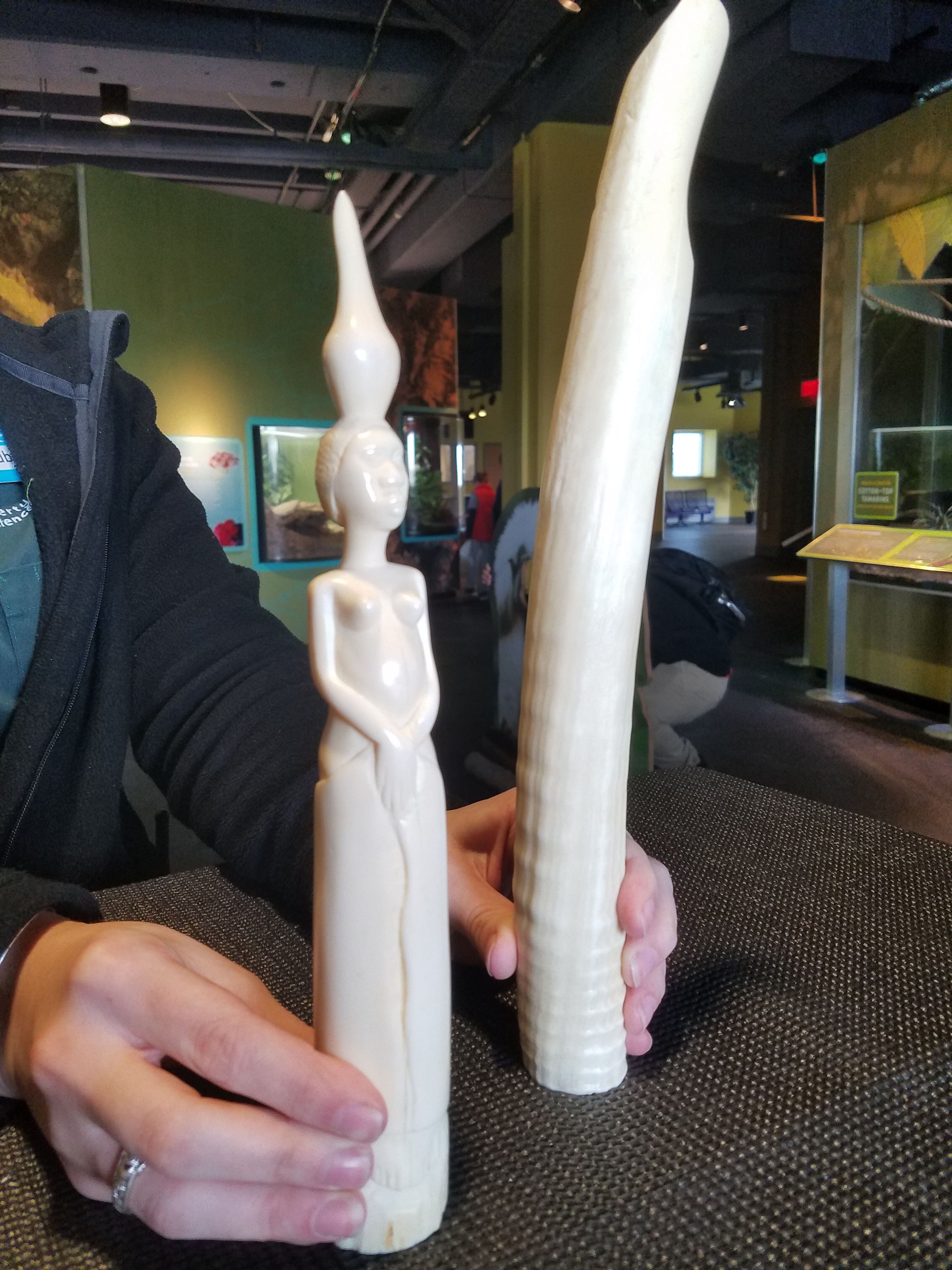
Also joining our array of artifacts is an olive ridley sea turtle hide. Luckily, this species of sea turtle is abundant, but all sea turtles are threatened by human activity. For example, oil spills and real estate development on nesting beaches severely hurt sea turtle populations. Ever see a plastic bag floating down the street like an urban tumbleweed? Or a balloon flying away in the wind? When that debris reaches the ocean, it looks almost identical to a jellyfish—one of the sea turtle’s favorite foods. Reducing plastic litter is an easy way we can all help sea turtles!
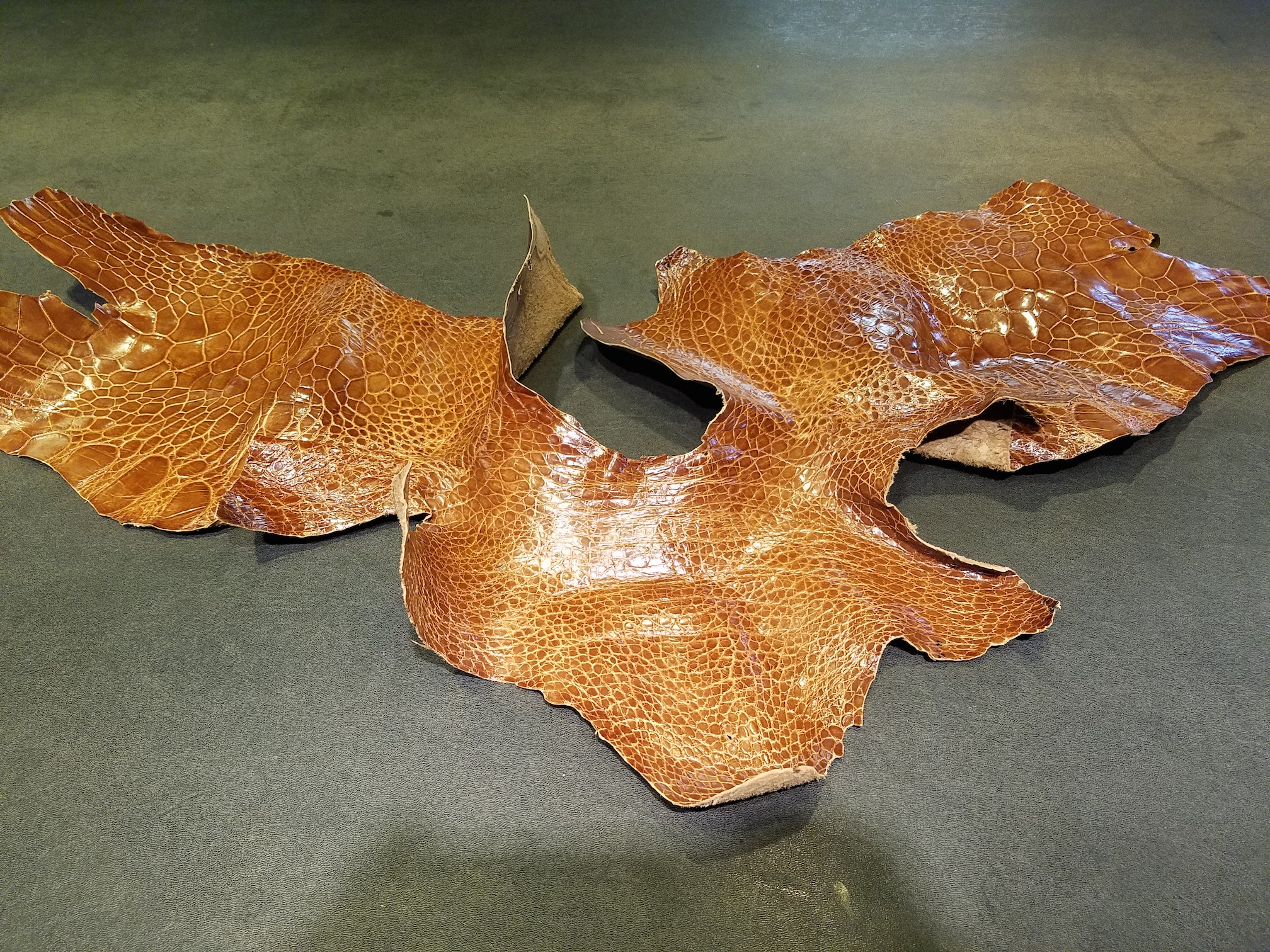
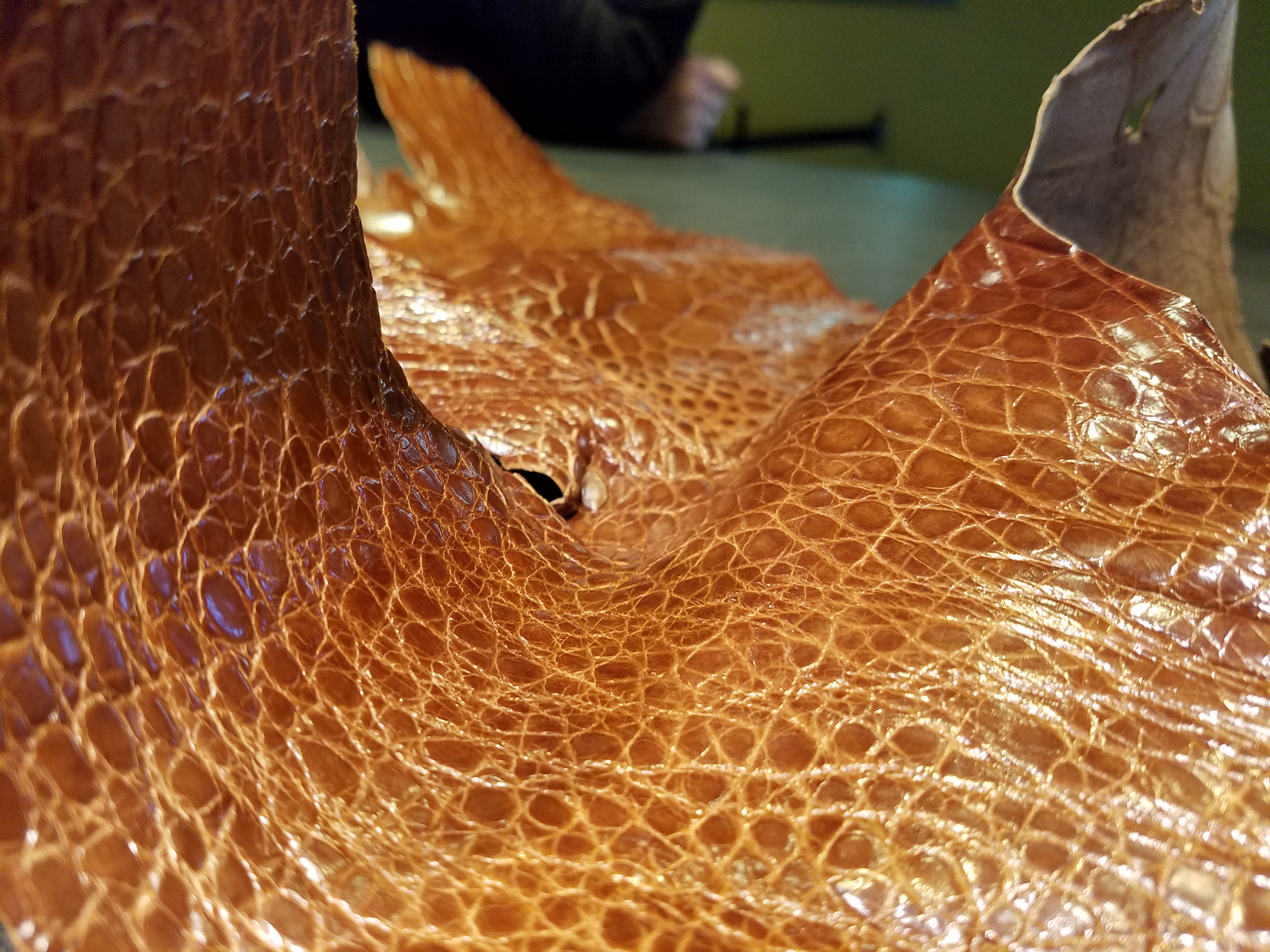
The United States of America is part of the CITES Treaty (which is short for “The Convention of International Trade in Endangered Species of Wild Flora and Fauna”). This international treaty, along with many federal laws, prohibits the import and export of certain plant and animal products. Frequently, tourists find these items attractive, without realizing how detrimental they are to the ecosystem. These particular articles were confiscated by the Department of Fish and Wildlife when a traveler attempted to bring them into the United States. Fish and Wildlife generously donated them to us for education.
Keep your eyes out for these new and exciting additions to Animal Artifacts!
